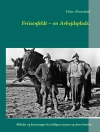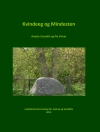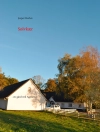Cities, War and Terrorism is the first book to look
critically at the ways in which warfare, terrorism and
counter-terrorism policies intersect in cities in the post Cold-War
period.
* A path-breaking exploration of the intersections of war,
terrorism and cities
* Argues that contemporary cities are the key strategic sites of
geopolitical conflict
* Written by the world’s leading analysts of the
intersections of urban space and military and terrorist
violence
* Draws on cutting-edge research from geography, history,
architecture, planning, sociology, critical theory, politics,
international relations and military studies
* Provides up-to-date empirical analyses of specific conflicts,
including 9/11, the ‚War on Terrorism‘, the Balkan
wars, the Israeli-Palestinian conflict, and urban antiglobalization
battles
* Offers lay readers a sophisticated perspective on the violence
that is engulfing our increasingly urbanised world
Inhaltsverzeichnis
List of Plates.
List of Figures.
List of Tables.
List of Contributors.
Series Editors‘ Preface.
Preface.
Introduction: Cities, Warfare, and States of Emergency: Stephen
Graham (University of Durham).
Part I: Cities, War and Terrorism in History and
Theory.
1 Cities as Strategic Sites : Place Annihilation and Urban
Geopolitics: Stephen Graham (University of Durham).
2 The City-as-Target, or Perpetuation and Death: Ryan Bishop and
Gregory Clancey (National University of Singapore; National
University of Singapore).
3 Shadow Architectures : War, Memories, and Berlin’s
Futures: Simon Guy (University of Newcastle).
4 Another Anxious Urbanism: Simulating Defence and Disaster in
Cold War America: Matthew Farish (University of Toronto).
5 Living (Occasionally Dying) Together in an Urban World:
Zygmunt Bauman (University of Leeds and the University of
Warsaw).
6 Everyday Techniques as Extraordinary Threats: Urban
Technostructures and Nonplaces in Terrorist Actions: Timothy W.
Luke (Virginia Polytechnic Institute and State University in
Blacksburg, Virginia).
Part II: Urbicide and the Urbanization of Warfare.
7 New Wars of the City : Relationships of ‚Urbicide‘ and
‚Genocide‘: Martin Shaw (University of Sussex).
8 Urbicide in Bosnia: Martin Coward (University of Sussex).
9 Strategic Points, Flexible Lines, Tense Surfaces and Political
Volumes: Ariel Sharon and The Geometry of Occupation: Eyal Weizmann
(an architect based in Tel Aviv and London).
10 Constructing Urbicide by Bulldozer in the Occupied
Territories: Stephen Graham.
11 City Streets – The War Zones of Globalisation:
Democracy and Military Operations in Urban Terrain in the Early
21st Century: Robert Warren (University of Delaware).
12 Continuity and Discontinuity : The Grammar of Urban Military
Operations : Alice Hills (King’s College, London).
Part III: Exposed Cities : Urban Impacts of Terrorism and the
‚War on Terror‘.
13 Urban Warfare: A Tour of the Battlefield: Michael Sorkin
(CCNY).
14 The ‚War on Terrorism‘ and Life in Cities after
September 11, 2001: Peter Marcuse (Columbia University in New York
City).
15 Recasting the ‚Ring of Steel‘: Designing Out
Terrorism in the City Of London? Jon Coaffee (University of
Newcastle).
16 Technology vs. ‚Terrorism‘: Circuits of City
Surveillance Since September 11: David Lyon (Queen’s
University, Kingston, Ontario).
17 Urban Dimensions of the Punishment of Afghanistan by U.S.
Bombs: Marc W. Herold (University of New Hampshire in Durham).
Epilogue: Stephen Graham.
Bibliography.
Index
Über den Autor
Stephen Graham is Professor of Human Geography at Durham University. Between 1992 and spring 2004 he was based at Newcastle University’s School of Architecture, Planning and Landscape. He is the author of Telecommunications and the City (with Simon Marvin, 1996) and Splintering Urbanism (with Simon Marvin, 2001) and editor of The Cybercities Reader (2003), among other publications.












